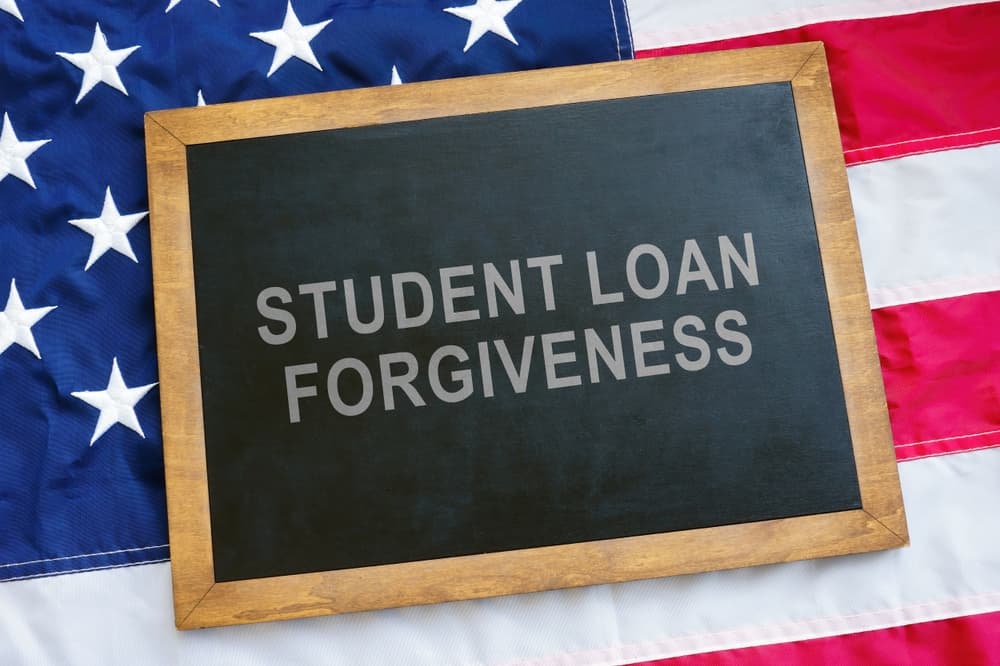
The journey of a veteran doesn’t end when they return home. Educational opportunities can pave the way for brighter futures. When service-related injuries or disabilities make it difficult to repay student loans, however, the TPD discharge program is a lifeline for veterans who need their student loans forgiven.
If you’re a veteran or a loved one of a veteran who needs financial relief from federal student loans, contact a total and permanent disability veteran attorney to get help reaching 100% P&T.
If you are totally and permanently disabled, you may qualify for a total and permanent disability (TPD) discharge of your federal student loans or TEACH Grant service obligation.
If you receive a TPD discharge, you will no longer need to repay your loans or complete your TEACH Grant service obligation.
A TPD discharge relieves veterans from having to repay or comply with obligations associated with federal student aid.
To benefit from TPD Discharge, veterans must have a 100 percent P&T (Permanent and Total) VA Rating or TDIU status. The TPD student loan discharge does not apply to private student loans.
To qualify for TPD Discharge, veterans must submit documentation from the U.S. Department of Veterans Affairs (VA): Providing a determination that a service-connected disability makes the veteran unemployable.
If you wish to designate someone to represent you in matters related to your application, you must complete the Applicant Representative Designation Total and Permanent Disability form.
At Berry Law, we believe that knowledge is power, and we are dedicated to empowering veterans with the information they need to navigate complex legal matters.
If you or someone you know needs help with their student loan forgiveness, contact an accredited VA disability benefits lawyer for guidance and support.
Veterans with physical or emotional injuries, illnesses, or whose pre-existing conditions a service-connected event aggravated may pursue a disability claim through the Department of Veterans Affairs (VA).
When veterans file a claim, the VA evaluates their condition and assigns a disability rating based on how profoundly it affects their ability to work and their overall quality of life.
These disability ratings come in three categories: total, permanent, or permanent and total.
To qualify for TDIU, you had to have one disability rated at 60 percent or two disabilities at 70 percent, with one being 40 percent – and that one disability has to prevent a veteran from working.
If you’re a veteran with disabilities and have federal student loans, contact an experienced veteran disability lawyer to help you apply for permanent and total disability. Your service to this country matters. We are here to fight for your rights.
Once you submit your completed application and documentation, you will receive a notice acknowledging receipt, explaining the review process, and informing you that you do not need to make loan payments during the review.
If you fail to apply within 120 days of notifying the relevant authorities of your intent, collection activities will resume on your loans, and unpaid interest may increase your loan principal amount. However, some exceptions apply, depending on the loan program.
The holders of your federal student loans and/or TEACH Grant service obligation will suspend collection activities while evaluating your discharge application.
This means you won’t have to make payments during the assessment.
If your loans are in default and undergoing wage garnishment and/or Treasury Offset, these payments will stop upon approval of the TPD discharge.
A thorough review of your TPD discharge application and supporting documentation will ensure completeness and eligibility.
Once you send all necessary documentation, your eligibility for a TPD discharge request will be forwarded for a final decision.
If you do not meet the criteria for total and permanent disability, you will receive a notification specifying:
You are not obligated to submit a new total and permanent disability discharge application if, within 12 months of the notification stating your ineligibility for discharge, you provide additional information regarding your disabling condition supporting your eligibility for discharge.
You must also request a re-evaluation of your discharge application. However, if you do not request re-evaluation within the 12-month timeframe and you still wish to have your eligibility re-evaluated, you must submit a new total and permanent disability discharge application.
If you request a re-evaluation or submit a new application, you must include new information about your disabling condition that you did not previously provide.
If you received a student loan discharge denial, don’t lose hope. The experienced legal team at Berry Law Firm can help you increase the Veterans Affairs disability rating to help you qualify for student loan forgiveness.
If you are granted a TPD discharge of your federal student loans or TEACH Grant service obligation, you may not receive new Direct Loans, Perkins Loans, or TEACH Grants in the future unless:
If your discharge was granted based on documentation from SSA or a licensed medical professional’s certification and you request a new Direct Loan, Perkins Loan, or TEACH Grant within the three-year post-discharge monitoring period, you must resume repayment on the previously discharged loans or acknowledge that you are once again subject to the terms of your TEACH Grant service obligation before receiving the new loan or TEACH Grant.
Upon discharge approval, a three-year post-discharge monitoring period begins from the discharge date.
Your obligation to repay loans or complete TEACH Grant service may be reinstated if, during or at the end of the post-discharge monitoring period, any of the following conditions occur:
Throughout this three-year monitoring period, you or your representative must:
If you do not meet the requirements outlined previously at any time during or at the end of the post-discharge monitoring period, your obligation to repay your discharged loans or complete your discharged TEACH Grant service will be reinstated.
If your loans are reinstated, you must repay them to the Department following the terms of your promissory notes.
Your loans will revert to the status that would have been in place if you had not submitted your total and permanent disability discharge application.
You won’t need to pay interest on your loans for the period between the date of discharge and the date your repayment obligation was reinstated.
If your TEACH Grant service obligation is reinstated, you must meet the requirements of your TEACH Grant Agreement to Serve.
If you fail to meet the terms of the agreement and your TEACH Grant funds convert to a Direct Unsubsidized Loan, you must fully repay that loan, and interest will accrue from the date(s) when the TEACH Grant funds were disbursed.
If your obligation to repay loans or your TEACH Grant service is reinstated, you will receive a notification specifying:
Veterans who have served our nation may take pathways to student loan relief. The Berry Law Firm concentrates on assisting veterans with the complex VA disability claims process.
Our experienced team of veteran disability law attorneys understands VA law, and we understand the struggle and frustration veterans go through when applying for disability benefits.
Contact us today to explore your options and find out how we can help you discharge your student loans.

Our monthly newsletter features about important and up-to-date veterans' law news, keeping you informed about the changes that matter.